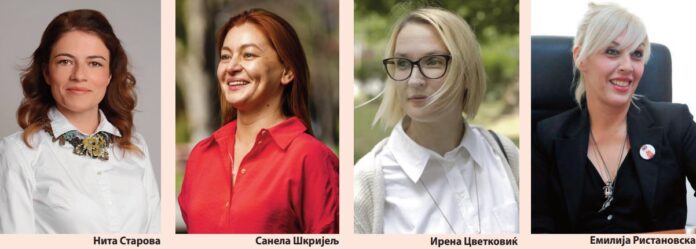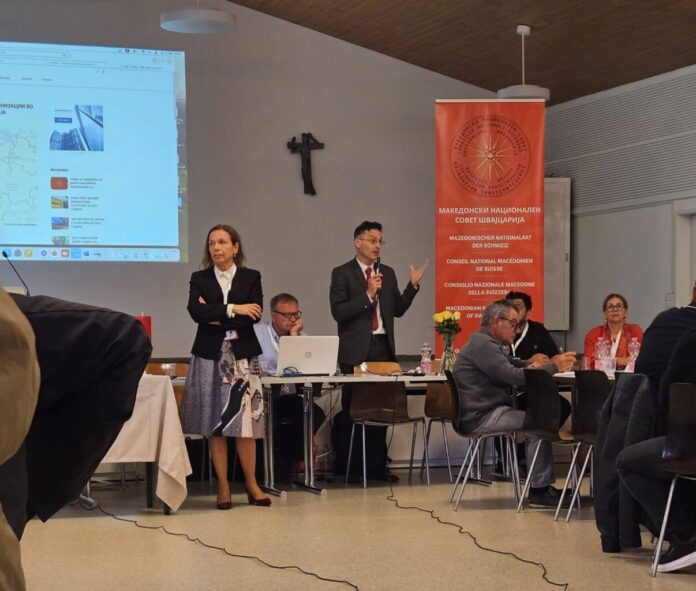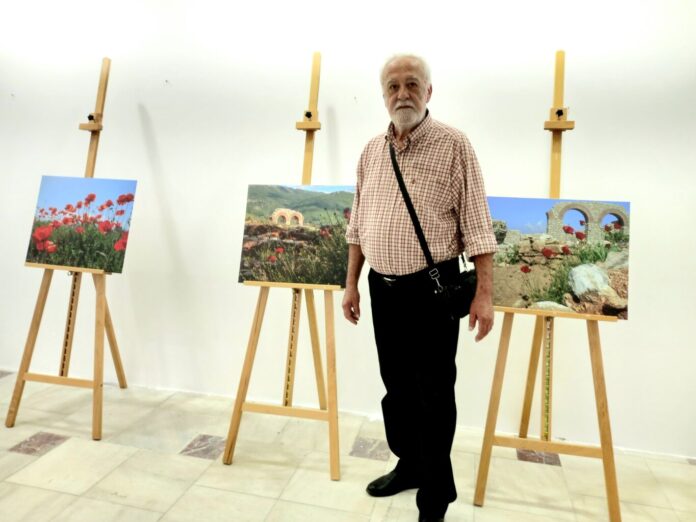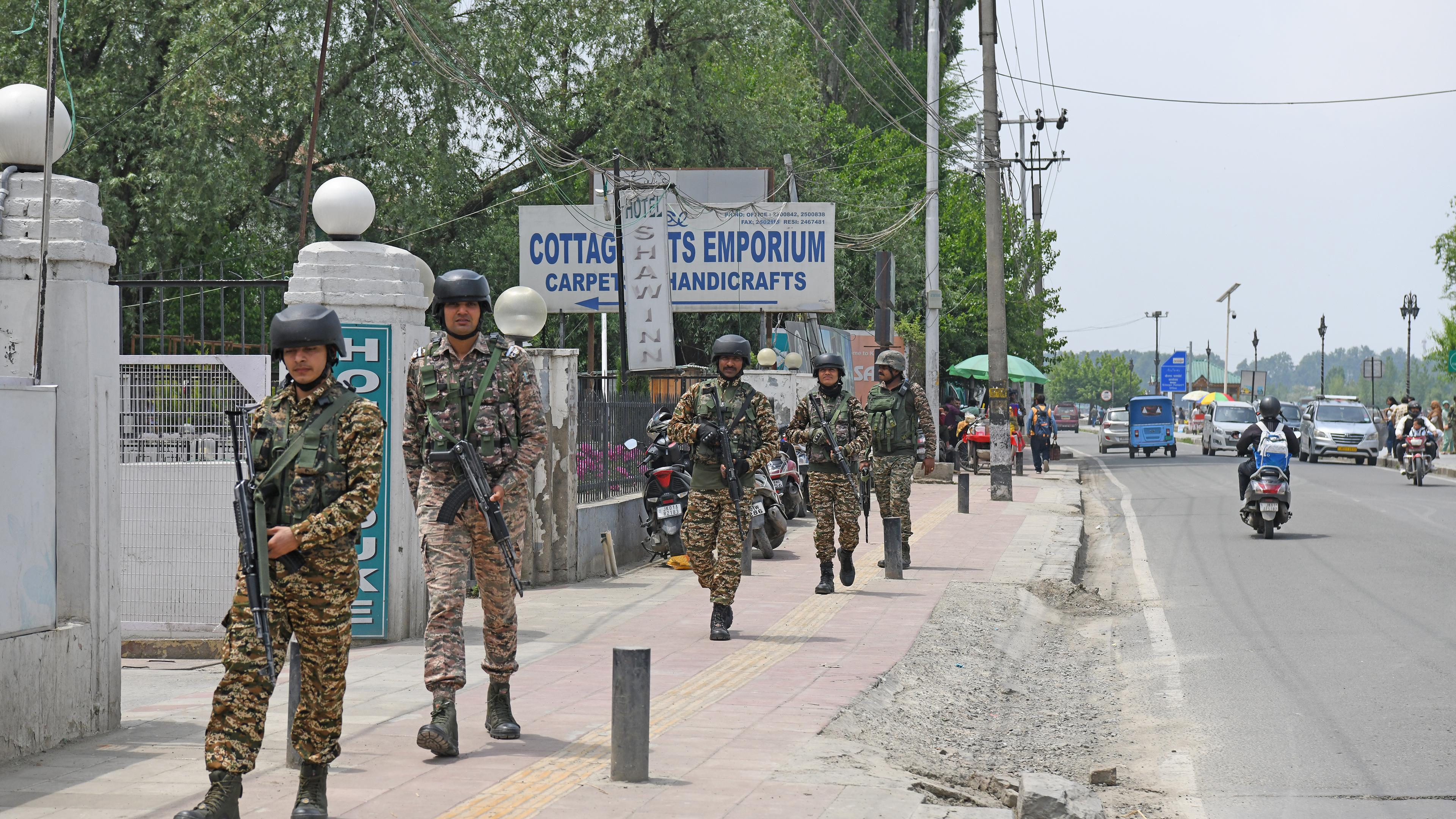We must clearly show that we are here to continue the struggle for gender equality

The regional feminist anti -fascist network (fame) relies on the international heritage of the AF (anti -fascist front of women). On the occasion of May 9 – Victory Day over Fascism, the Friedrich Ebertt Foundation and Fama publicly share the work program and future steps on the network. The event was held at the Museum of Contemporary Art, and we are talking about the specific ideas and goals of the network with members of the organization, Nita Starova, Sanela Skrijelj, Irena Cvetkovic and Emilija Ristanovska.
Recently, the region marked the 80th anniversary of the founding of the AF and a fame was formed, how did this initiative come?
Nita Starova: Two years ago, in December 2022, with the support of the Friedrich Ebert Foundation, the 80th anniversary of the founding of the Anti -Fascist Front of the Women of Yugoslavia in Bosnian Petrovec and Bihac. The event featured more than 100 women – activists, politicians, academic citizens, journalists, artists, workers, descendants of partisans and members of AF from: Bosnia and Herzegovina, Serbia, Slovenia, Croatia, Northern Macedonia and Montenegro, with the idea of reviving the fight against women, Let’s initiate creating a new regional female platform. During the two -day work we faced the fact that fascism is not a topic of the past, but a constant threat that always requires a way to get a full expression. That its essence does not obsolete, but from time to time, depending on economic and social crises, it requires (and finds) a new form of articulation. As a result of the exchange of ideas during the event, the Fama network was formed, which relies on the international heritage of the AF. A consensus has been reached that the strengthening of the feminist front and mutual support at the post -Yugoslav level are the prerequisites for creating a strong resistance to the growing fascist forces and that it is important to accept and exploit the experience that our predecessors have gained in committing the creation of an emancipated world.
How do you imagine a long -term network of national and regional level functioning?
Nita Starova: The network is made up of individual members – volunteers, artists, scientists, trade unions, politicians, activists of NGOs, workers, farmers, unemployed, belonging to all minorities who share our values and goals. The goals and efforts are contained in the 21st -century anti -fascist manifesto, which the network announced quickly after its formation. Regular meetings have been held in Ljubljana, Belgrade and Novi Sad for the past two years, and activities have been organized to mark the 80th anniversary of the establishment of the AF in Skopje and Belgrade, which have received a large response from the public. A series of activities to support members of the network were also organized in situations where the ruling regimes in their countries were targeted because of their activism, expressing a personal position in the public, or any act of opposition to current repressive policies in their countries. As the next step, this year we are launching activities for the network to work together for concrete and social change, which improve the daily lives of women in the country and the region, exchange of experiences and best practices, organizing common support actions when needed. The main motivation of the network is building a different world – a world of peace, equality and sustainable development.
How can the collaboration between female movements in different countries of the former Yugoslavia contribute to joint tackling of gender inequality and growing authoritarian trends?
Sanela Shkrijelj: Communion is our strength. And this is not just an empty floss, but an extension of the foundations that our predecessors and the leaders of one of the most massive female movements in Europe have laid out in this area. We live the same challenges, which are growing anti -democratic movements, populism, sowing hatred towards everything that is different, ethno -nationalism that is sold as patriotism. Our predecessors knew that power was in association, not in individualism, knew that power was in the caring communities, in which we care about each other and every one of us works for the good of all – because we can only hope that we will live in fair and safe societies, societies in which everyone can live. By learning from them, but also from one another, we can develop better strategies and communities of resistance to growing authoritarian trends, which always hit women and remaining vulnerable groups first. Cooperation between women’s movements, nets and organizations and activists in our region is the only way to stay connected and persistent, as opposed to the everyday life we live in. This is how we become more visible and our voice becomes stronger. We must clearly show that we are here, determined to defend our acquired rights and continue the struggle for gender equality.
Women’s rights are endangered today, a new « mutated fascism » is right before women, which battles do we stay on the front?
Sanela Shkrijelj: We must be very aware that, unfortunately, no right has been gained forever and the struggle must be permanent and common to those who see that they are largely trying to reach out to our rights. So that absolutely yes, revolution is an unfinished revolution and we are very far from actual equality. Hate has not disappeared from our streets, there is and becomes stronger in public space, even promoted by irresponsible politicians, especially women and LGBTI people. Gender -based violence occupies an epidemic, the number of females is growing, and institutions seem to be deaf to the needs of women facing violence. Women are still not in sufficient number of decisive positions, they are still less paid for jobs of the same value, pregnant Rabotnicki has no proper protection. In rural areas they face lack of access to basic services, unequal distribution of property, lack of kindergartens, and farmers are still demanding their legally right to compensation for maternity leave. What is particularly dire is that in the key field, education, we testify to the background, that is, the deletion of gender equality as a value, precisely influenced by anti -democratic and anti -bodies. Thus, the state acts in contrast to the interests of all its citizens, as well as national and international commitments undertaken within the objectives of sustainable development – especially the goal number 5 for the promotion of gender equality – as well as national legislation on protection against discrimination and the national development strategy of the state. To summarize, freedom and liberation are a task that does not end. And as many times before, women take the initiative on the foundations of anti -fascist values dedicated and work together to preserve peace, equality, justice and solidarity.
How important is this association to be both anti -nationalist and internationalist in the spirit of the historical AF?
Irena Cvetkovic: It is absolutely important that the association is transnational and on anti -nationalist grounds. After all, the values and ideologies are those that connect women to such a network. And not only because of the historical AF, but more because of the recognition of ideological positions, which I believe in a single possible response to capitalist globalism and growing nationalism. In that sense, although the network is regional, it aspires all over the world as a vision and a new political horizon.
How many modern female movements recognize the history of AF as their inheritance and inspiration?
Irena Cvetkovic: Unfortunately, not enough, but that is why networks and initiatives of this type are needed. Modern social movements in Macedonia, including the female, often have a false idea that everything starts with them. This is a major disadvantage, because it deprives these progressive movements from tradition and continuity, which are the power and engine of unity. The biggest culprit is the lack of archives and mechanisms of maintaining memory in our country. The latest initiatives of some of the women’s movements for archives, digitization of the Macedonian feminist or female heritage and the creation of spaces of learning and the remembrance of the anti -fascist female struggle, rejoice. We consider our initiative to complement these sparks and we hope to make up for the lost so far.
You are unwillingly advocated for greater visibility of women. What are the key messages you send to the younger generations, especially girls and women?
Emilija Ristanovska: To avoid clichés and prejudices. The principles for which these movements advocate are not for anyone in particular, they are common. It is not an internal struggle between the sexes, but a common view that in its essence stands for the equal world. Vigilance. Because hate speech does not mean freedom of speech. No one is less valuable than anyone else and should not feel inferior. There must be a struggle against inertia, hardened, conformism, trial before other prejudices. The fight also involves alertness to its own prejudice. It also implies cultivation of thought and cultivation of our attitude towards the other.
The messages should be heard by everyone. They are particularly related to the younger generations and girls. We are collectively stuck in the unfortunate lessons in history, psychology, anthropology, art, which we pamphletly quote – if needed. Education is a very important segment in overcoming these stereotypes and misinterpretations. It’s a long and not always easy process, but I think it’s the right one.






:format(webp)/s3/static.nrc.nl/images/gn4/stripped/data118880454-3d8bfb.jpg)